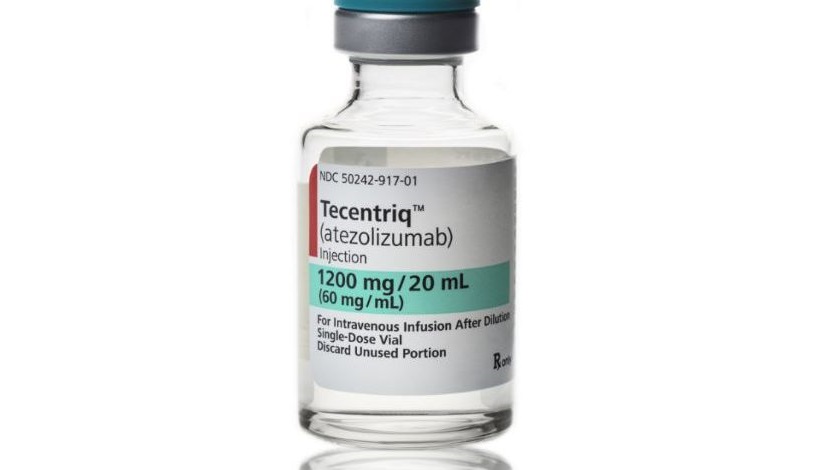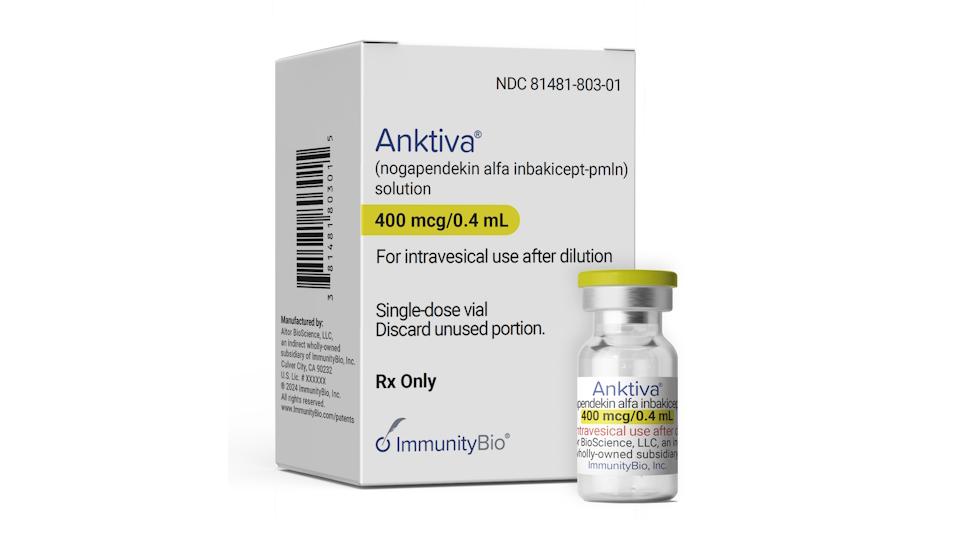Roche scores with Tecentriq combo in first-line bladder cancer

Roche’s Tecentriq has become the first checkpoint inhibitor to show a benefit in previously-untreated patients with bladder cancer in combination with chemotherapy.
PD-L1 inhibitor Tecentriq (atezolizumab) plus platinum-based chemotherapy has been shown to reduce the risk of disease worsening or death in people with previously untreated locally advanced or metastatic urothelial carcinoma (UC) – the most common form of bladder cancer – compared to chemo given alone.
The news come from the phase 3 IMvigor130 trial, and will be submitted to regulators around the world including in the US and Europe, said Roche.
Tecentriq has been approved since 2017 as a first-line treatment option for UC patients who were unable to receive platinum-based chemo because of other health-related factors, a group which accounts for an estimated 50% of all cases in the US, according to the National Cancer Institute (NCI).
The new data could make Roche’s drug an add-on option for the group of patients who can receive chemo, extending the eligible population for the drug.
Merck & Co/MSD’s rival checkpoint inhibitor Keytruda (pembrolizumab) is also approved for first-line bladder cancer in patients who can’t take chemotherapy.
Use of both Tecentriq and Keytruda as first-line monotherapy has been held back because initial readouts from the IMvigor 130 study and KeyNote-361 trial with Merck’s drug suggested overall survival was worse with the cancer immunotherapies than with chemo, particularly in patients whose tumours expressed low levels of the biomarker PD-L1.
That resulted in warnings from both the FDA and the EMA last year that use of the drugs as first-line monotherapy should be restricted to use in patients with high PD-L1 expression. That has meant both Tecentriq and Keytruda have made the most headway as second-line therapies after chemo.
All told, five PD-1/PD-L1 inhibitors have now been approved for first- or second-line UC treatment, with Bristol-Myers Squibb’s Opdivo (nivolumab), AstraZeneca’s Imfinzi (durvalumab) and Merck KGaA/Pfizer’s Bavencio (avelumab) also joining the fray since 2017.
Roche says “encouraging overall survival” data was found at this interim analysis of the combination arm of IMvigor130, although that data isn’t yet mature.
Roche’s chief medical officer Sandra Horning said the trial is “the first positive phase 3 study of a cancer immunotherapy combination in previously untreated advanced bladder cancer, an aggressive disease with high unmet need.”
The company currently has four phase 3 studies on the go evaluating Tecentriq alone and in combination with other medicines in early and advanced bladder cancer, as it tries to build momentum for the drug in the face of strong competition from Keytruda and other checkpoint inhibitors.
Along with bladder cancer, Tecentriq is also approved to treat various forms of non-small cell and small cell lung cancer, as well as PD-L1-positive triple-negative breast cancer (TNBC).












